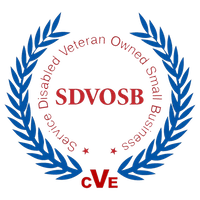 Having trouble finding time? In early 2016, a new weekends-off initiative was unveiled at J.P. Morgan called “Pencils Down.” The media was quick to highlight the move by the financial giant as a radical step:
Having trouble finding time? In early 2016, a new weekends-off initiative was unveiled at J.P. Morgan called “Pencils Down.” The media was quick to highlight the move by the financial giant as a radical step:
“The initiative…is unusual in a high-powered corner of Wall Street where 100-hour weeks are considered by some as a badge of honor and dreaded by others as an antiquated aspect of the jobs that leads to early burnout.”
“At J.P. Morgan, Jamie Says Relax,” The Wall Street Journal, January 22, 2016.
How do you strike the right balance?
The short answer is that it’s not about the number of hours you work, it’s about what you do with your time.
Think about it…why has the cost of health insurance premiums gone up by 131% just between 1999-2009? If you are working 10 hours a day, your staff is probably working at least 12. More often than not, good people leave because they cannot maintain their balance. The key element they feel a loss of control over is time.
Increasingly, we face the tyranny of information which compounds the time challenge. We can look at our phones and exchange information almost continuously. We’re trapped in a hand-held prison of sorts. People even have pseudo-conversations while looking at their devices. Rude as it is, too many leaders do it, too.
We also ignore meeting discipline, so we allow meetings to take place spontaneously, without agendas or time constraints. Suddenly the day is gone, it’s dark outside, and we’re still at work. Our kids are growing up without us.
So how do we restore balance in this chaos? We take more ownership of our time. Here are some proven techniques to get your life back and still grow, make payroll, and beat your competition:
- Commit to following a strategic planning process to align and focus everyone’s work. Set your “azimuth” on your mission, intent, values, and culture. Strive for unambiguous focus and drive out false urgency — stop doing things that don’t drive profits.
- Practice the “Law of Three” – No matter how many tasks you have to accomplish, only three of those tasks will account for 90% of the value of your contribution to your company and yourself (Master Your Time, Master Your Life, by Brian Tracy (2016 Random House Books), p.61.). Make meetings matter.
- Get up and walk out the door, and don’t send emails and texts after work hours. You can draft all kinds of good ideas in the middle of the night, but don’t send them until the next morning. You’ll protect your time, and theirs, and develop a better sense of balance.
Enjoy the journey!





